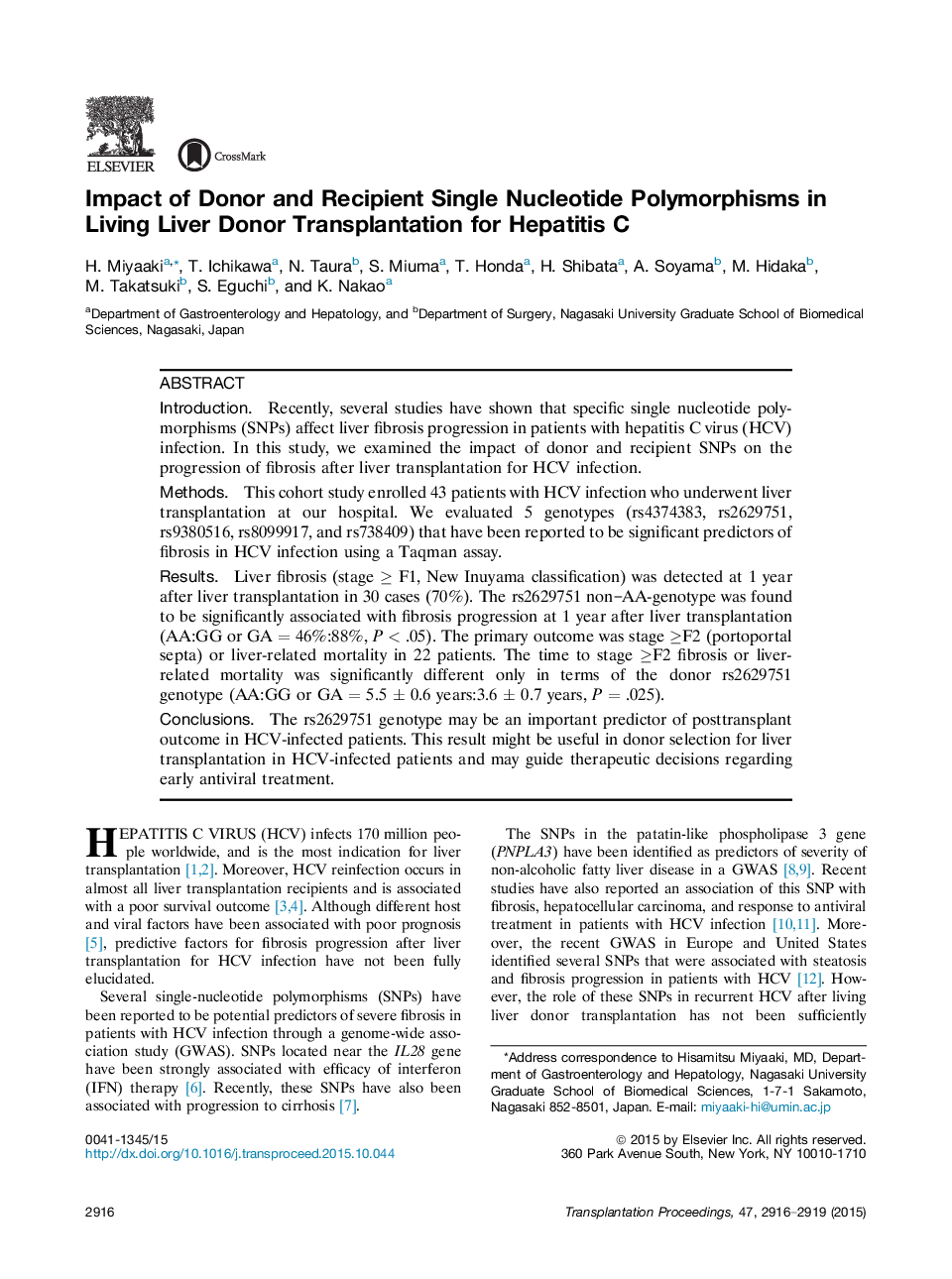| Article ID | Journal | Published Year | Pages | File Type |
|---|---|---|---|---|
| 4255844 | Transplantation Proceedings | 2015 | 4 Pages |
•SNPs affect fibrosis progression in patients with HCV who have undergone liver transplantation.•Rs2629751 SNPs may be an predictor of posttransplant outcome in HCV-infected patients.•SNPs may be useful in donor selection for liver transplantation in HCV-infected patients.
IntroductionRecently, several studies have shown that specific single nucleotide polymorphisms (SNPs) affect liver fibrosis progression in patients with hepatitis C virus (HCV) infection. In this study, we examined the impact of donor and recipient SNPs on the progression of fibrosis after liver transplantation for HCV infection.MethodsThis cohort study enrolled 43 patients with HCV infection who underwent liver transplantation at our hospital. We evaluated 5 genotypes (rs4374383, rs2629751, rs9380516, rs8099917, and rs738409) that have been reported to be significant predictors of fibrosis in HCV infection using a Taqman assay.ResultsLiver fibrosis (stage ≥ F1, New Inuyama classification) was detected at 1 year after liver transplantation in 30 cases (70%). The rs2629751 non–AA-genotype was found to be significantly associated with fibrosis progression at 1 year after liver transplantation (AA:GG or GA = 46%:88%, P < .05). The primary outcome was stage ≥F2 (portoportal septa) or liver-related mortality in 22 patients. The time to stage ≥F2 fibrosis or liver-related mortality was significantly different only in terms of the donor rs2629751 genotype (AA:GG or GA = 5.5 ± 0.6 years:3.6 ± 0.7 years, P = .025).ConclusionsThe rs2629751 genotype may be an important predictor of posttransplant outcome in HCV-infected patients. This result might be useful in donor selection for liver transplantation in HCV-infected patients and may guide therapeutic decisions regarding early antiviral treatment.
